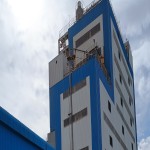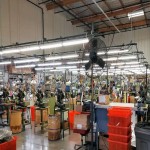How IIoT is Revolutionizing Manufacturing Processes
The Fourth Industrial Revolution, marked by the integration of digital technologies into manufacturing, has given rise to the Industrial Internet of Things (IIoT). This paradigm shift is transforming traditional factories into smart, interconnected systems, heralding a new era of efficiency, precision, and data-driven decision-making in the manufacturing sector.
Unveiling the Power of IIoT
At the heart of this revolution lies the Industrial Internet of Things (IIoT), a network of connected devices, sensors, and machines that communicate and share data in real-time. This interconnected web forms the backbone of smart manufacturing, where every aspect of the production process becomes a source of valuable information.
Real-Time Monitoring and Control
IIoT enables manufacturers to monitor operations in real-time, providing a comprehensive view of the entire production ecosystem. From machine performance to supply chain logistics, the ability to collect and analyze data instantaneously empowers businesses to make informed decisions on the fly.
Predictive Maintenance for Enhanced Reliability
One of the standout features of IIoT is its capacity for predictive maintenance. By leveraging data analytics and machine learning, manufacturers can anticipate when equipment is likely to fail, enabling proactive maintenance measures that minimize downtime and extend the lifespan of critical assets.
Seamless Integration with Existing Systems
Niotek, a pioneer in Industry 4.0 solutions, exemplifies the seamless integration of IIoT technologies. The Magna IoT platform, with its flagship product HORUS, offers a holistic approach to IIoT implementation, ensuring compatibility with existing industrial systems. This adaptability minimizes disruptions and facilitates a smooth transition to a more connected and intelligent manufacturing environment.
Enhanced Quality Control through Data Insights
With IIoT, manufacturers gain unprecedented insights into the production process. The ability to track and trace products from raw materials to finished goods enhances quality control measures. Anomalies can be identified and addressed in real-time, reducing the likelihood of defects and ensuring consistent product quality.
The Future of Manufacturing Efficiency
As manufacturers increasingly embrace IIoT, the landscape of industrial production is undergoing a fundamental transformation. Efficiency gains, cost savings, and a heightened ability to respond to market demands are among the dividends of this digital revolution.
Conclusion
In the dynamic realm of manufacturing, the adoption of IIoT is not just a technological upgrade; it's a strategic imperative. Niotek's commitment to harnessing the power of IIoT exemplifies a forward-looking approach, where connectivity and data converge to create a manufacturing ecosystem that is not only smarter but also more responsive and adaptable. The revolution is underway, and those who embrace the potential of IIoT are poised to lead the charge into a future where manufacturing is as efficient and dynamic as it is innovative.














